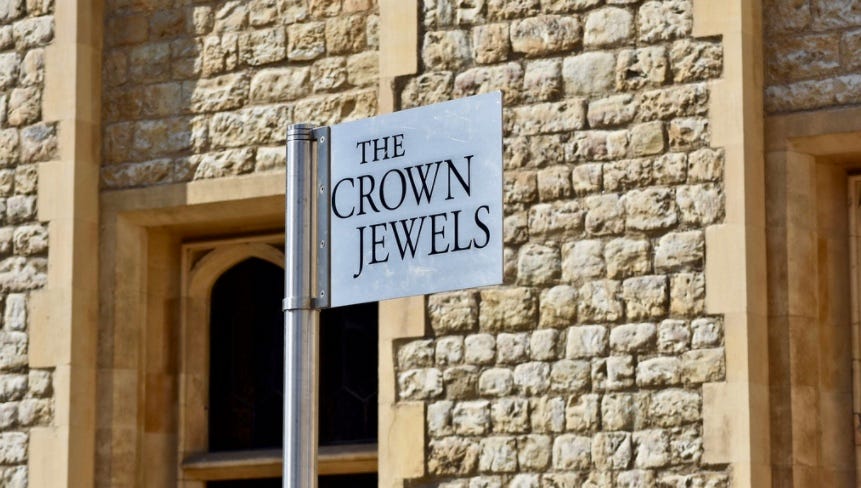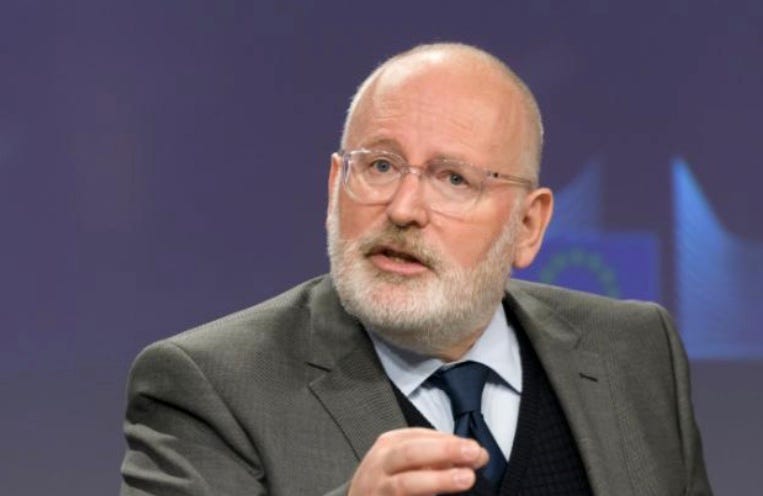A new era in climate journalism
Welcome to Callaway Climate Insights, and especially to all of you who have subscribed early in the past two weeks. Please share today.


Tomorrow Callaway Climate Insights begins a new era in climate journalism, as we make our own transition into a subscription news, data and analysis service.
When I logged on this morning, I was overwhelmed by the amount of news breaking in the climate finance space around the world. From Amazon’s wind investment in Europe and South Korea’s targeted investment in wind to boost its Covid recovery, to a decarbonization investment pledge by Scottish Widows and a surge in solar stocks.
Things are moving fast, and we are moving with them to keep you informed about the latest in the climate finance industry and more importantly, tell you what it means. With the funds you provide through your subscriptions, we’ll be growing our list of journalists and contributors in Europe, Asia, and here in the U.S. We’ll be adding data and bringing you exclusive interviews, such as our webinar on Feb. 23 with EU Climate Commissioner Frans Timmermans (more on that below).
For the next 24 hours, our annual rate of $249 will be discounted 20% to $200 for anyone looking for a deal. I hope you’ll take advantage of it.
A monthly rate of $25 is also provided for those who would rather space it out, and group and student rates are also available. I’ve been humbled and encouraged by the number of you who’ve taken out the special founders rate of $349 ahead of time in these past few weeks. As we tailor our services in coming weeks and months, the founders will enjoy exclusive privileges in access and information, and their rate will never rise.
Climate change is a global issue. Bigger than Covid, and ultimately far more dangerous. The race to find solutions in time — like the race to produce a Covid vaccine — will yield some of the most unprecedented scientific and manufacturing advancements in history in coming years. It’s a noble quest, a striking investment opportunity, and more than anything, a great story. We’re on it for you.
More insights below. . . .
Don’t forget to contact me directly if you have suggestions or ideas at dcallaway@callawayclimateinsights.com.
Special event: Callaway Climate Insights and Frans Timmermans
. . . . In a special event for Callaway Climate Insights readers, European Union Climate Commissioner Frans Timmermans will join us in a webinar on Tuesday, Feb. 23 to discuss Europe’s energy transition goals for 2030 and how it’s working with the incoming Biden Administration on the climate emergency. Powered by Ibec, which represents Irish business nationally and internationally, the event will also include Eamon Ryan, minister for the environment, climate and communications in Ireland. Timmermans is one of the most influential climate leaders on the globe — a straight talker who will share his insights on transatlantic deals, how corporations can respond to the climate crisis, and public-private partnerships. The webinar will also feature a Q&A session for our paying subscribers to ask questions. . . .
UBS targets three climate themes for growth in next decade (Podcast)
. . . . UBS waded into the sustainable investing waters last week with a special report targeting 10 themes for environmental, social, and governance (ESG) investors, with three leaping out to us. In a Callaway Climate Insights podcast with Robert Powell, Sustainable Investing Strategist Amantia Muhedini of UBS Global Wealth Management said diversity in boardrooms, plant-based meat products, and the electrification of transport will be major drivers of investment and innovation in the next decade, as companies and consumers dramatically change how they operate.
The trend toward electrification in transport, which has been going on for a while, will accelerate, and UBS expects electric vehicles to account for at least 40% of global new car sales by 2030. What’s more, UBS expects growth in pure battery electric vehicle sales to reach a 30% compound annual growth rate to $800 billion to $1 trillion annually by 2030. . . .
Queen gets glittering windfall from sale of wind farm leases

. . . . She who owns the seabed gets the spoils. Yes, Queen Elizabeth II, because she holds exclusive rights to lease the undersea assets around much of the British Isles, is set to pocket about $140 million after an auction of wind-turbine plots off the coasts of England and Wales, reports The Guardian. The cash, which considerably exceeded expectations, will accrue to the Crown Estate, which manages the 94-year-old monarch’s property portfolio, with another $412 million going to the central government. UK Prime Minister Boris Johnson said in October the island nation plans to power every home with wind energy by the end of the decade, creating several thousand new jobs in the process. The area which reportedly attracted the biggest bids was a section of the Irish Sea between northern Wales and northwest England. Visitors to the area can attest to its breezy conditions. . . .
. . . . While the American government is sending a slew of stimulus checks in an attempt to revive its Covid-crushed economy, South Korea is trying something else: a $43.2 billion plan, mostly funded by corporations, to build the world’s largest wind power plant by 2030. The project, reports Reuters, is a major component of President Moon Jae-in’s efforts to encourage an environmentally friendly recovery from the COVID-19 pandemic. The country’s Green New Deal, initiated last year to curb reliance on fossil fuels in Asia’s fourth-largest economy, aims to make the Far East nation carbon-neutral by 2050. Moon’s office said the project would provide up to 5,600 jobs and help boost the country’s wind power capacity to 16.5 GW by 2030 from 1.67 GW now. Interestingly, the vast majority of the funding is coming from private industry, including companies such as Doosan Heavy Industries and Hanwha Engineering. This type of targeted Covid recovery plan, wrapping clean energy investment into economic recovery, could be a model for the Biden Administration as it seeks expand its climate plans outside of the areas of regulation and executive orders. . . .
. . . . When just making your own climate pledge isn’t enough. Scottish Widows on Monday said it would halve the carbon footprint of its 170 billion pounds ($234 billion) in investments by the end of the decade and achieve net zero by 2050. In a new year in which most of the climate pledges coming in have moved ambitiously to a 2030 time frame from 2050, this one seems more cautious, despite the unit of Lloyds Banking Group loudly claiming it’s the first major UK pensions and insurance provider to do so. The company also called out its competitors, saying a massive, 2.17 trillion-pound gap remains until the entire industry is committed. Scottish Widows said it supported shorter-term goals, such as 2030. But 10 years still seems a long time for going only halfway. Norway’s sovereign wealth fund, for example, said last week it has already sold off all its fossil fuel positions last year, at a big loss. A lot of these pension and investments positions sit in passive funds, so it will take time, for sure. But now that the press release is out, the hard part begins. . . .
. . . . Speaking of sovereign wealth funds, a new report out today from the International Forum of Sovereign Wealth Funds found that only eight out of 34 have more than 10% of their assets invested in climate strategies, such as renewable energy, according to the Financial Times. When you’re talking $8.6 trillion in total assets, that’s a lot of upside. Perhaps a group discount to Callaway Climate Insights? . . .
. . . . And finally, our condolences to the family of George Shultz, the former U.S. Secretary of State and Republican grandee, who passed away over the weekend at 100. Shultz gave an interview to Callaway Climate Insights’ Marsha Vande Berg just three weeks ago, in which he offered President Joe Biden advice on fighting climate change just before his inauguration. Like many, Shultz favored a carbon tax. Like few, he proposed it years ago. Here’s to him. . . .
News briefs: What reefs reveal about warming; Tesla’s $100 mln prize
Editor’s picks:
Reefs reveal warming may have preceded pollution
How to win Tesla titan’s $100 million carbon-capture prize
The solar industry sizzles – and so do its stocks






